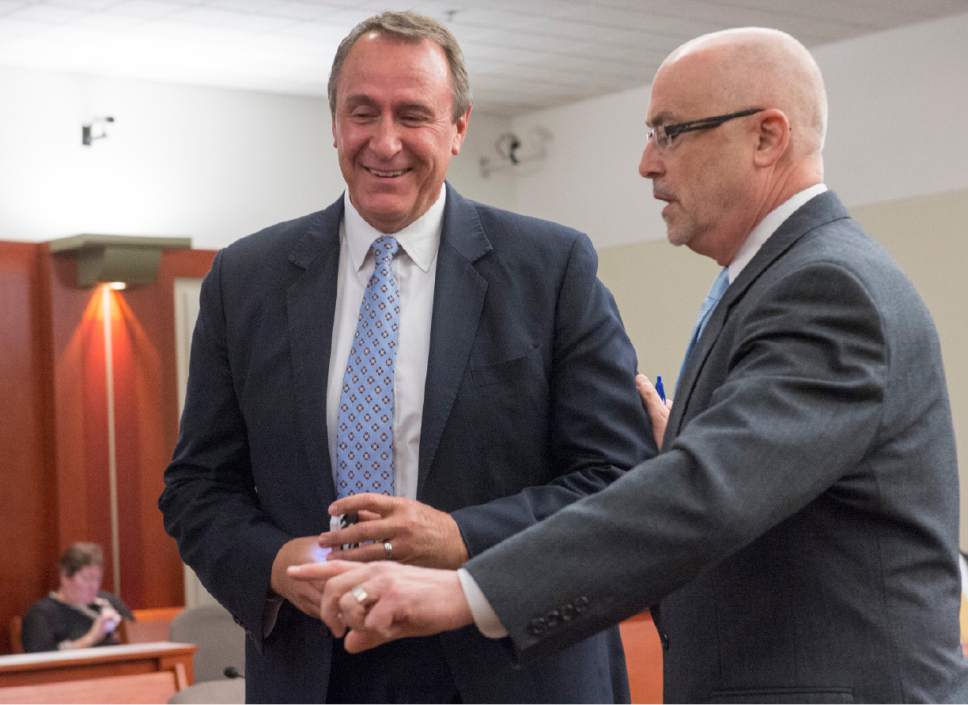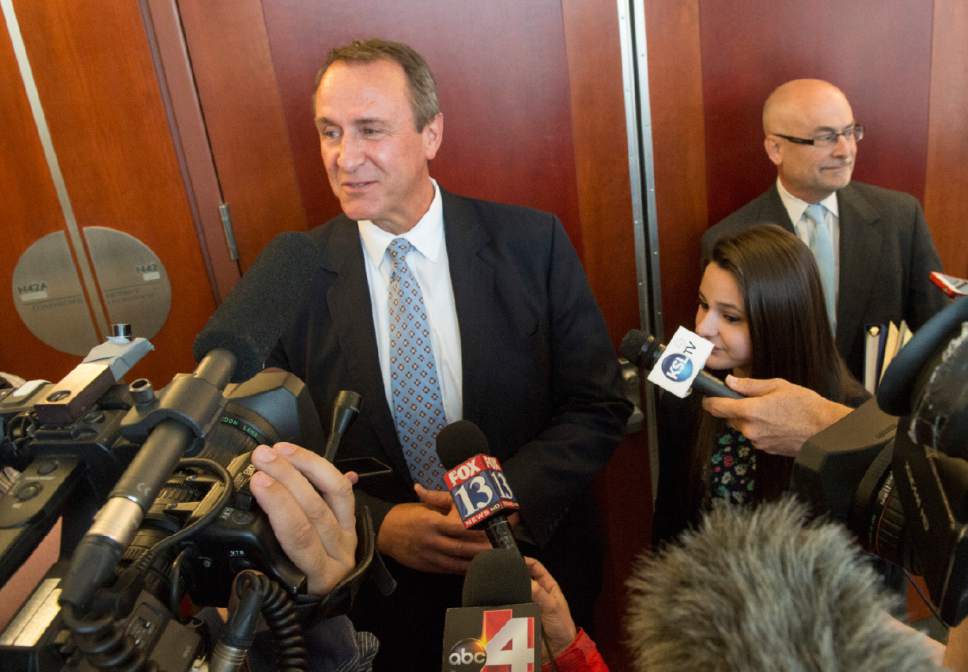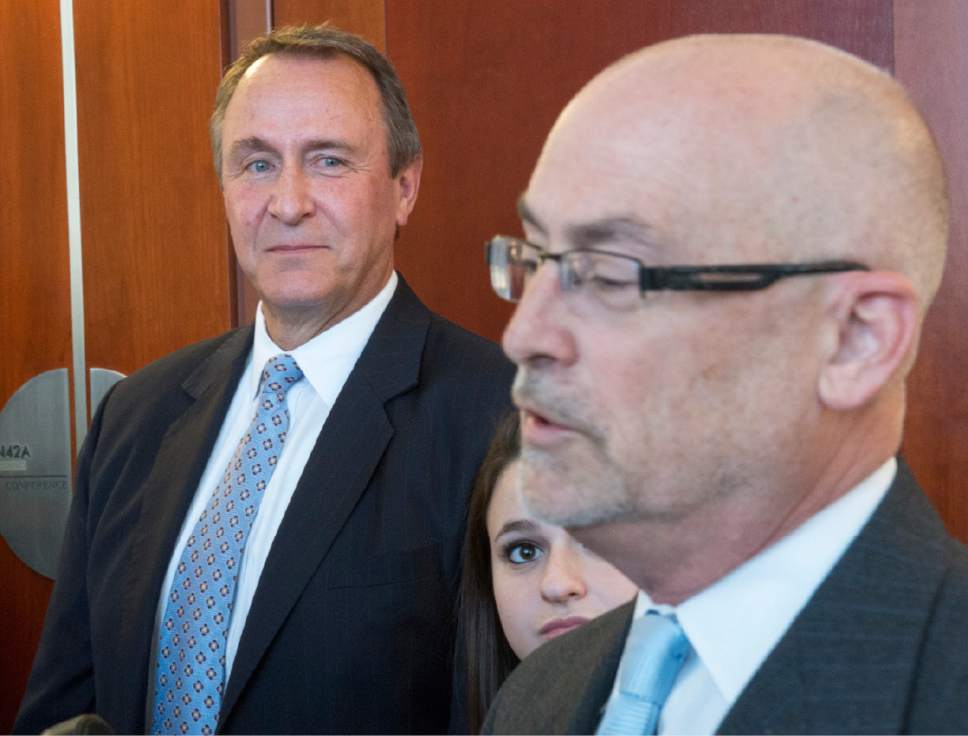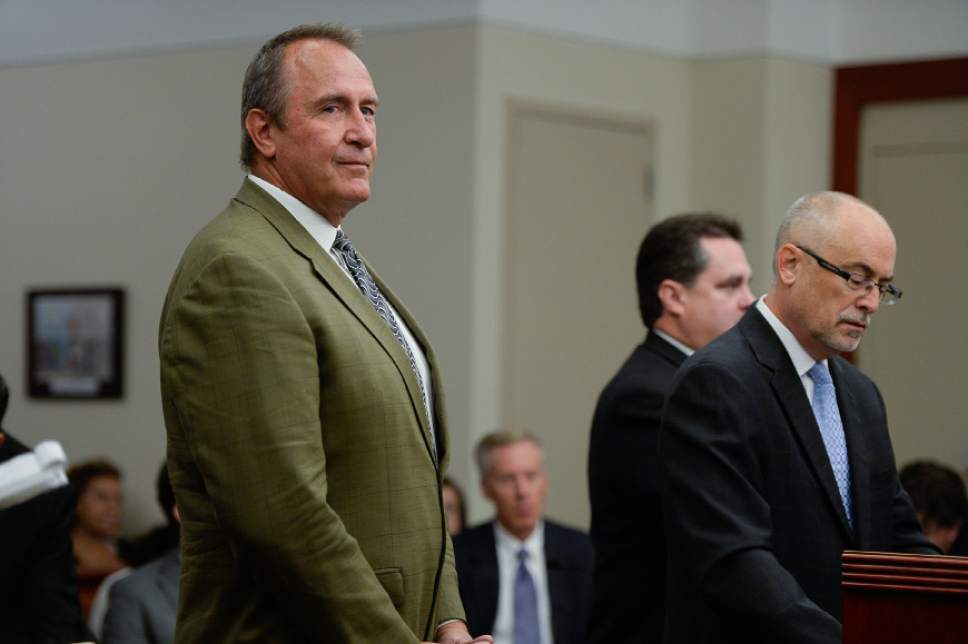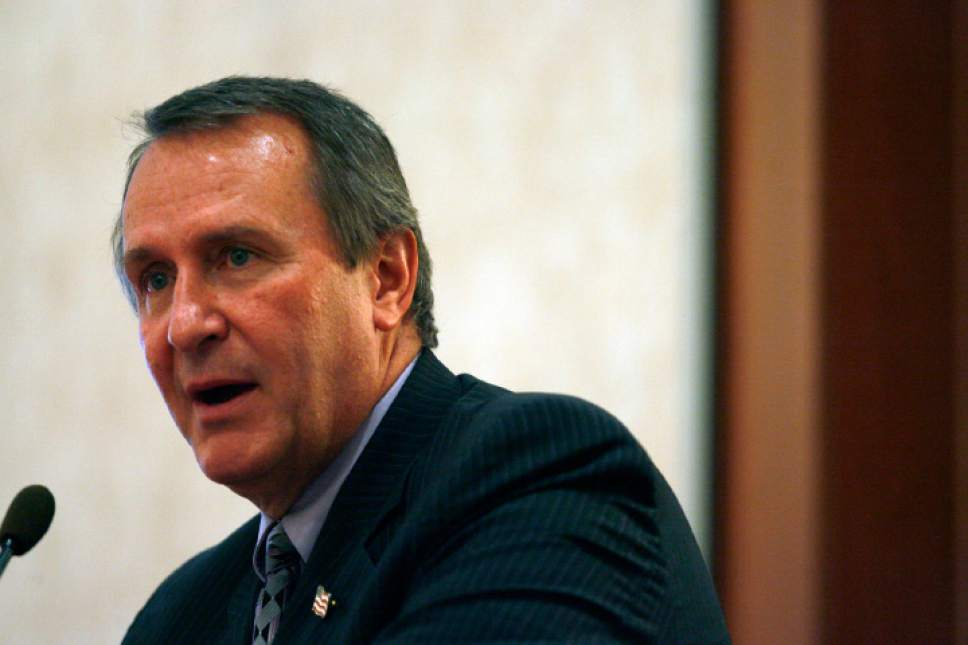This is an archived article that was published on sltrib.com in 2017, and information in the article may be outdated. It is provided only for personal research purposes and may not be reprinted.
Former Utah Attorney General Mark Shurtleff has filed a federal misconduct complaint against state and federal agents who drove the public-corruption investigation that resulted in criminal charges against him in 2014.
The complaint against FBI agents Michelle Pickens and Jon Isakson, along with Utah Department of Public Safety (DPS) investigator Scott Nesbitt, was filed Nov. 7, 2016, with the U.S. Department of Justice's Office of Professional Responsibility.
The complaint's existence is noted in a Dec. 1, 2016, cover letter sent by Shurtleff's attorney, Richard Van Wagoner, to the Justice Department's Office of the Inspector General.
Pickens headed the Utah FBI's public-corruption unit, which handled the investigation of Shurtleff and his handpicked successor, John Swallow. Isakson was the FBI's lead case agent; Nesbitt was the top state investigator and was cross-deputized as a U.S. marshal.
The letter, which was obtained by The Salt Lake Tribune, references two enclosures: a copy of the misconduct complaint and a transcript of an interview Shurtleff appears to have given in November with DPS internal-affairs officers. The Tribune does not have copies of the two enclosures.
Shurtleff complaint cover letter by The Salt Lake Tribune on Scribd
On Monday, Van Wagoner confirmed the authenticity of the cover letter but said he is barred from talking about the complaint.
Utah's FBI office declined to comment, as did Utah department of safety officials.
John Lavinsky, a lawyer for the DOJ's Office of the Inspector General, was also unable to comment, citing an agency policy to "not confirm or deny the existence of an investigation."
Shurtleff was charged with multiple felony and misdemeanor counts, including accepting prohibited gifts, obstructing justice, misconduct and bribery stemming from allegations of a pay-to-play climate inside the Utah attorney general's office.
The case was dismissed in July 2016 partly because Davis County Attorney Troy Rawlings said he could not obtain critical evidence from federal agencies.
The content of Shurtleff's federal misconduct complaint remains unclear, but the former three-term attorney general has publicly complained that investigators twisted facts and witness statements in violation of his constitutional rights.
"Agent Nesbitt along with FBI Agent Isakson perjured themselves in search warrant affidavits time and time again," Shurtleff said last month. "We have the videotaped interviews and the transcripts."
Shurtleff's comments came during the recent 3rd District Court trial of Swallow, who was investigated by the same state and federal agents. A jury acquitted Swallow on Thursday of nine felony and misdemeanor counts.
The defense motion last year to dismiss Shurtleff's case focused on allegations of misconduct by investigators and argued that the case had been built on the use of "false statements and material omissions" of fact.
One exhibit includes an analysis of nearly 80 statements, primarily by Nesbitt, which Shurtleff argues were either misleading or "outright mistruths" to secure search warrants needed to raid his Sandy home.
For example, the document states, Nesbitt omitted information about Shurtleff's role in the federal probe of an alleged bribe attempt that involved a key state witness, Marc Sessions Jenson, who was prosecuted by Shurtleff's office.
Court papers also say the agent "intentionally misconstrued" the contents of an emails between Shurtleff and two of his staffers related to a third party's "inappropriate" attempt to dictate the terms of a plea agreement for Jenson.
The document asserts that Nesbitt's affidavits relied heavily on information gleaned from Isakson — there are 67 references to the federal agent — or others from the FBI, which had launched its investigation of Shurtleff and then shared its findings with Rawlings and Salt Lake County District Attorney Sim Gill after the Justice Department's Public Integrity Section declined to pursue federal charges.
Rawlings' motion to drop the Shurtleff case included statements that the FBI and DPS agents failed to interview key witnesses with knowledge of Shurtleff's decision to get his office out of a foreclosure lawsuit with Bank of America. That omission led to "negative insinuations" about the then-attorney general's handling of the matter, the prosecutor wrote, and gave a "false and misleading portrait" of the suit's settlement.
Rawlings also said warrant affidavits were "wrong" about the timeline for the recruitment and employment of Shurtleff by a law firm that represented the bank, a job he started after retiring from public service in early 2013.
jdobner@sltrib.com


